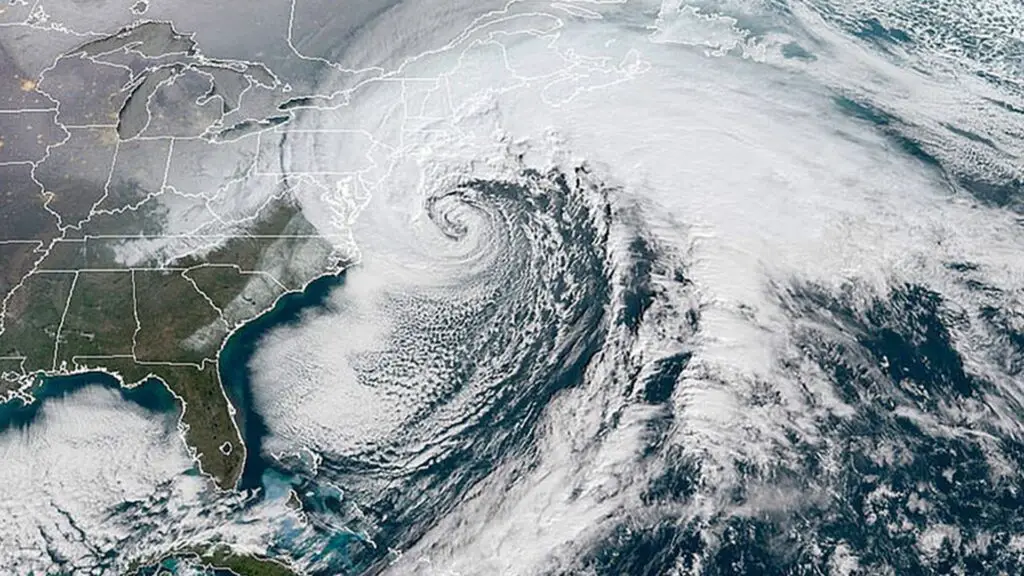This huge ‘bomb cyclone’ is predicted to disrupt holiday travel plans across the United States
A huge storm is forecast to develop into a cyclone and deliver severe snow and blizzard conditions to the Plains, Great Lakes, Ohio Valley, Northeast, and some interior portions of the mid-Atlantic between Wednesday and Friday evening. Over 110 million Americans are anticipated to travel by car or plane this winter storm, thus delays are to be expected.
Heavy winds are predicted to cause significant disruptions at airports across the eastern United States. It was reported in the Washington Post that high winds could cause blackouts.
The Washington Post reports that major airports in the Midwest and Great Lakes, including Chicago’s O’Hare International Airport, will likely experience significant travel disruptions. Extreme weather is predicted for Thursday night and Friday.
The National Weather Service has issued a blizzard warning for Chicago. Several airlines, such as United, American, and Southwest, have been preparing waiver plans in advance. When it comes to rebookings and the like in the month of December, fees and fare variations are often forgiven or changed as part of a waiver process.
United Airlines is issuing four different winter weather waivers: one for the East Coast, one for the Midwest, one for Texas, and one for the Central and Northwest United States.
According to CNN, Southwest Airlines has issued a waiver for travel in the “Rocky Mountain and Midwest Winter Weather,” while American Airlines has provided waivers for travel into, out of, and within more than a dozen Northeast airports.
Since Tuesday morning, CNN reports that several airlines have also provided waivers in anticipation of the major storms. These airlines include JetBlue, Delta Air Lines, Alaska Airlines, and Spirit Airlines.
The Washington Post said that winter storm warnings had been issued for roughly 50 million people. Potentially qualifying as a “bomb cyclone,” a severe type of mid-latitude storm, the approaching storm is likely to intensify explosively. The situation is feared to be potentially fatal.
The Washington Post predicts that several areas will have its coldest Christmas since 1989 as a result of this storm.
